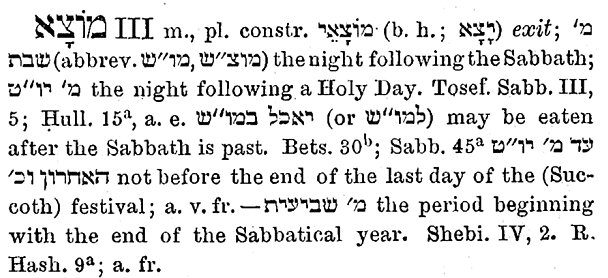I often hear that מוצאי שבת means "departure of the Sabbath," but it seems to me that the phrase for this should be צאת שבת (or יציאת שבת).
The phrase מוצאי שבת seems to me to mean המוצאים של שבת, which would literally be "the things of Shabbos that proceed forth." (I'm thinking of מוצא as in על כל מוצא פי ה' יחיה האדם.)
Am I understanding this correctly or am I missing something? If so, then what are the "things that proceed forth" and why is Saturday night called this?

